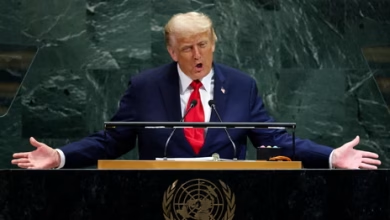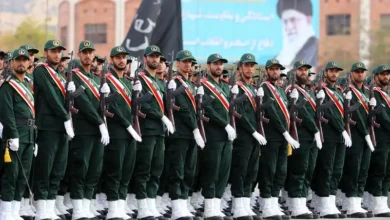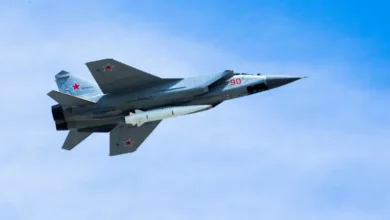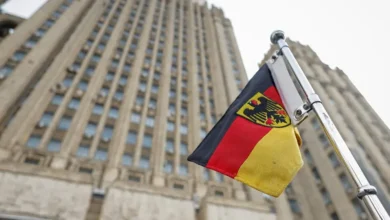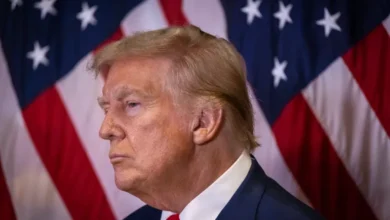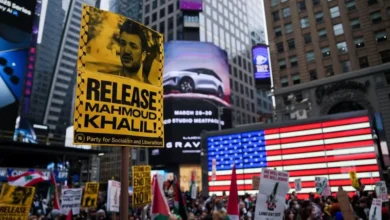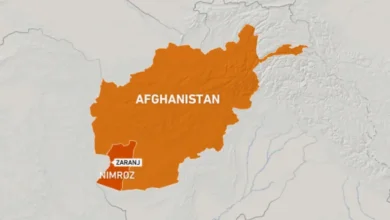Biden, Brazil’s Lula vow relationship reboot at White House meet
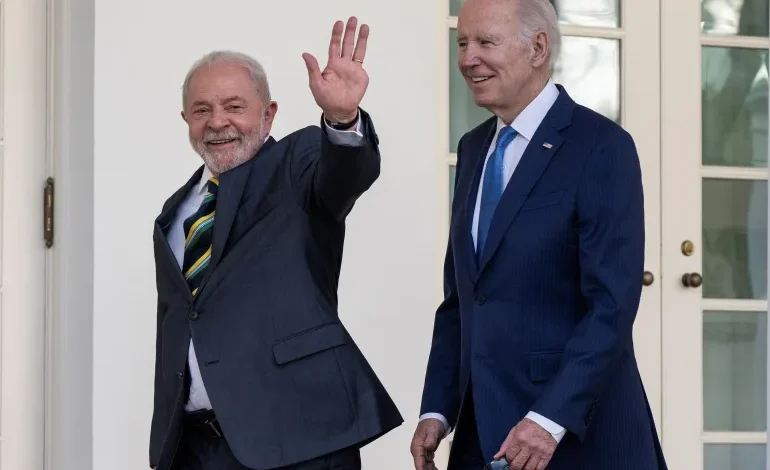
Brazilian President Luiz Inacio Lula de Silva and United States President Joe Biden have promised to kickstart relations between the two countries, focusing on supporting democracy and combatting climate change.
The pledge on Friday came during a White House meeting between the two leaders, the first since the Brazilian president, commonly known as Lula, took office in January, replacing far-right leader Jair Bolsonaro.
Lula and Biden highlighted shared goals during the visit, with Biden agreeing to visit Brazil in the future. The tone was a distinct departure from that during the administration of Bolsonaro, who maintained close ties with Biden’s predecessor, former US President Donald Trump.
Brazil “self-marginalised itself for four years”, Lula told reporters, without directly referencing Bolsonaro, who earned the nickname “The Trump of the Tropics” for his combative style and regularly repeating misinformation.
During the public portion of the meeting, Lula said the former president’s world “started and ended with fake news in the morning, afternoon, at night”.
Biden laughed and interjected: “Sounds familiar.”
The meeting came just over a month after Bolsonaro supporters stormed the Congress, Supreme Court and the presidential palace on January 8, demanding that the military intervene and remove Lula from office.
The riot paralleled the storming of the US Capitol on January 6, 2021, by supporters of Trump seeking to overturn Biden’s victory.
“Both our nations’ strong democracies have been tested … both in the United States and Brazil, democracy prevailed,” said Biden who is set to host co-host the Washington-created Summit for Democracy, along with Costa Rica, the Netherlands, the Republic of Korea, and Republic of Zambia.
“We have some issues on which we can work together,” Lula told Biden in turn.
Protecting the Amazon
Biden and Lula also stressed their mutual commitment to saving the Amazon rainforest and fighting global warming.
The efforts had both been sidelined by Bolsonaro and Trump.
In November of last year, Lula, who previously served as Brazil’s president from 2003 to 2010, said he would reassert Brazil’s leadership on the issue, and tackle record levels of deforestation in the Amazon, during the 2022 United Nations Climate Change Conference in Egypt in November.
During Friday’s meeting, Biden said the leaders’ “shared values … put us on the same page, particularly, especially, when it comes to the climate crisis.”
Still, speculation that the US would use the visit to announce a major contribution to a special fund aimed at protecting the rainforest was put to bed.
Instead, the Biden administration only “announced its intent to work with Congress to provide funds for programs to protect and conserve the Brazilian Amazon, including initial support for the Amazon Fund”, according to the joint statement released by the duo.
The fund was set up in 2009 but was frozen when Bolsonaro took office in 2019. Lula has rebooted it with support from Norway, Germany and the UK.
The Brazilian leader told reporters following the meeting that the pair had not specifically addressed the Amazon Fund, but he said he had brought up “the responsibility of rich countries to assume responsibility to fund countries with rainforests and not only in Brazil”.
Differences over Ukraine
The leaders also discussed Russia’s invasion of Ukraine, insecurity in Haiti, migration, trade, and United Nations Security Council reform, according to the joint statement.
The leaders said they “deplored the violation of the territorial integrity of Ukraine by Russia and the annexation of parts of its territory as flagrant violations of international law and called for a just and durable peace”.
Still, the leaders have been at odds over how to respond to the Russian invasion.
Biden has spearheaded a major Western effort to rally behind Ukraine, providing aid, heavy-duty weapons, military training and diplomatic support as the country struggles to repel Russia.
Brazil, meanwhile, is among several major democratic countries – including India and South Africa – that have largely avoided providing material support for Ukraine and have sent mixed political messages. The three countries are members of the BRICS group of emerging economies, along with Russia and China.
As a candidate, Lula also drew ire from some Western countries for suggesting Russia and Ukraine were equally to blame for the invasion.

